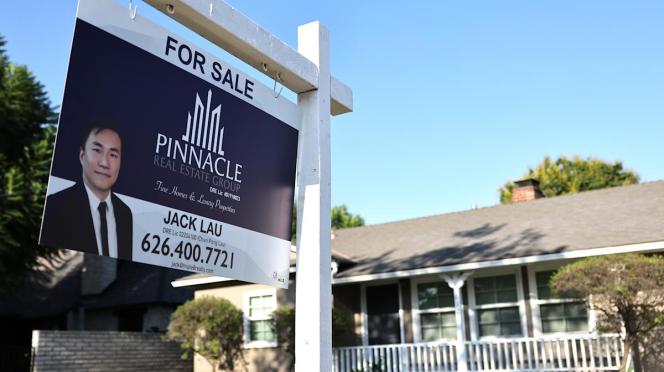Rachel Reeves rejects claims of £50bn ‘black hole’ in finances
Rachel Reeves has rejected forecasts of a £50bn “black hole” in the public finances, despite higher borrowing costs and expected tax rises piling pressure on the chancellor ahead of the autumn Budget.
In an exclusive interview with the BBC, Reeves hit back at reports speculating over her plans, arguing that “a lot of them are talking rubbish”.
It comes after the cost of long-term government borrowing rose to a 27-year high on Tuesday, fuelling concerns the chancellor will have to hike taxes or cut spending.
Reeves said she would aim to “get the balance right” at the Budget, which will be on 26 November, but the Conservatives said the government “don’t know what they’re doing”.
Reeves told the BBC: “Working people and businesses can rest assured, I know how important it is to return growth in investments to our economy and I will do that in the Budget this year.”
However, shadow chancellor Mel Stride accused the government of not having a plan and of “stalling” the Budget “in the vain hope things might get better”.
Last month, an independent think tank, the National Institute of Economic and Social Research (Niesr), estimated that the chancellor would need to plug a £50bn gap in the public finances.
But the chancellor played down the figure and told the BBC Niesr had “more than most got their numbers wrong in the last few years”.
Forecasts for how much money Reeves needs to find to meet her self-imposed borrowing rules vary widely, with some estimates putting the figure at around £25bn.
Reeves has two rules on government borrowing, which she has repeatedly said are “non-negotiable”. These are:
- day-to-day government costs will be paid for by tax income, rather than borrowing by 2029-30
- to get debt falling as a share of national income by the end of this parliament in 2029-30
Ahead of the election, Labour pledged not to increase taxes on “working people”, which included VAT, National Insurance (NI) and income tax.
However, at the Budget last year, she increased the amount of NI employers have to pay, which led to a backlash from many businesses and sectors, such as hospitality.
U-turns on proposed welfare cuts and winter fuel payments have also put pressure on the chancellor to find alternative revenue streams.
It has led to speculation the chancellor is considering tax rises on property, banks and people, but Reeves hit back at such reports.
“People who seem to know what is in the Budget before we have made those decisions are just wrong,” she told the BBC.
“A lot of them are talking rubbish, and frankly, a lot of what they’re saying is irresponsible.
“It’s up to me to decide what is in the Budget, and I will do that in a careful way, getting the balance right between making sure that we’ve got enough money to find our public services, particularly our National Health Service , whilst also ensuring that we can bring growth and investment to Britain,” she added.
Reflecting on this week’s changes of personnel in Downing Street, and the beefing up of the prime minister’s economic team, she said she was working “in lockstep” with Number 10.
The chancellor also denied that recent sharp increases in government borrowing costs hurt her credibility, saying they have “moved in line with other countries”.
“There are global pressures on borrowing costs. You can see that around the world, from the United States to Europe and beyond. We’re not immune to those,” she said.
In recent days long-term borrowing costs across the world have increased, amid concerns about political uncertainty, levels of debt, and a structural shift in pension funds away from such bonds.
Some commentators have argued that the UK’s financial position is so weak that it will need a bailout from the International Monetary Fund, but Reeves said “serious economists” don’t accept that idea.
She argued there were “lots of positive signs” in the economy, but accepted that more needed to be done so that “working people wherever they live, actually feel the benefits of that growth”.
Asked about whether she would return to the bill for welfare to make the Budget numbers add up, she said: “The welfare state should always be there for people who really need it, but we also need to do more to ensure that everyone who can work does work.”
After the recent U-turn on welfare cuts, the terms of reference for Work and Pensions Minister Stephen Timms’ review of disability benefits is expected shortly.
Some Labour MPs are also campaigning for extra spending to alleviate child poverty by reversing the two-child benefit cap.
The chancellor was speaking to the BBC ahead of the announcement of the Budget date.












